Alcoholism Resources
There are many resources available both to those struggling to overcome an alcohol use disorder and to the loved ones who are trying to support them.
Looking For Alcoholism Resources?
If you or your loved one are struggling with an alcohol use disorder (AUD), help is available. When you’re working to overcome a drinking problem or maintain your sobriety, it’s important to know that you’re not alone. There are resources across the country that are designed specifically for individuals and loved ones impacted by the harmful effects of alcohol. With the guidance of these organizations, you will have the tools for living a healthy and alcohol-free life.
Alcoholism Support Groups
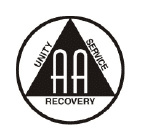
Alcoholics Anonymous (AA)
A program run by individuals in recovery from an alcohol use disorder (AUD), Alcoholics Anonymous (AA) teaches you how to get and remain sober long-term. The 12 steps and 12 traditions of AA serve as the organization’s foundation and provide encouragement during recovery. Program chapters are located across the United States and internationally, and are open to recovering alcoholics and their loved ones.

Al-Anon and Alateen
Designed with the family members and friends of alcoholics in mind, Al-Anon and Alateen are great resources for learning how to cope with someone’s drinking behavior. Individuals can attend meetings in person, online, or via the phone to discuss the situations they are currently facing. Members advise one another on how to support and encourage a loved one to seek the treatment they need.
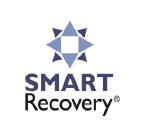
SMART Recovery™
SMART Recovery™ is a support group for people suffering from varying types of addiction. Members can participate in face-to-face meetings worldwide and access digital resources such as a 24/7 chat room, message board, and daily online meetings. The organization’s 4-Point Program empowers you to overcome alcoholism, teaches you how to maintain sobriety, and gives you the tools for a balanced life.
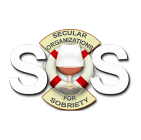
Secular Organizations for Sobriety (SOS)
Similar to AA, Secular Organizations for Sobriety (SOS) offers meetings that alcoholics can attend in order to get and remain sober. There are a variety of SOS meetings that take place in cities across the United States, as well as online groups. In addition to helping recovering alcoholics, there are SOS groups that support those overcoming drug abuse and compulsive eating disorders.

Women For Sobriety
The Women for Sobriety organization was designed to help women who suffer from alcoholism or substance abuse. Meeting and support groups follow the Thirteen Statement Program. The only requirement to become a member of Women for Sobriety is to be committed to continued abstinence. Members have access to many self-help tools such as an online forum, conferences, booklets, and DVDs.
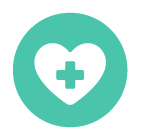
Your Primary Care Physician
When you’re ready to get help for an alcohol use disorder (AUD), your primary care physician can help you find a treatment center. Your physician knows about your medical history and understands the best options for your recovery. A health provider can not only diagnose alcoholism, but can refer you to top-rated rehab facilities and walk you through the recovery process.

Need Addiction Support?
Reach out to a treatment provider today! Calls are always free and confidential.
Alcoholism Research Organizations

American Academy of Addiction Psychiatry (AAAP)
This organization produces The American Journal on Addictions which contains detailed research and articles about substance abuse, including alcoholism. Through the American Academy of Addiction Psychiatry (AAAP) patient resources portal, individuals can locate specialists near them and see their accreditations. There’s also a list of topics – psychiatry, types of addictions, and mental illness – that patients and families can learn more about.
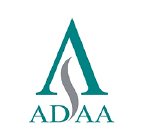
Anxiety and Depression Association of America (ADAA)
The ADAA is an organization that provides an array of resources about the effects of anxiety and depression. Oftentimes, alcoholism may co-exist with other mental health conditions such as bipolar disorder, phobias, and anxiety disorders. ADAA provides information about treating a mental health condition, debunks common misconceptions, and publishes stories of recovery. If you are seeking professional help, the organization also has a directory of therapists across the United States.

The American Psychological Association (APA)
Since 1892, the American Psychological Association (APA) has been an essential resource for promoting research related to the studies of alcoholism and mental health. The organization has an updated list of psychologists across the nation and what they specialize in. Additionally, their database is a great tool for finding the latest resources encompassing an array of psychological subjects.
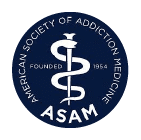
American Society of Addiction Medicine (ASAM)
Find out about current research studies being conducted for addictions, including alcoholism, from the American Society of Addiction Medicine (ASAM). The organization is dedicated to improving the quality of care provided to individuals seeking treatment for different forms of substance abuse. Through ASAM, you can learn about local treatment services, health professionals who specialize in alcohol recovery, and the latest therapies that are available to heavy drinkers.
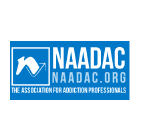
National Association of Alcoholism and Drug Abuse Counselors (NAADAC)
The National Association of Alcoholism and Drug Abuse Counselors (NAADAC) is useful for those who are interested in helping others overcome an addiction. Health professionals with specializations in prevention, treatment, and recovery make up the NAADAC’s membership base. By promoting healthy lifestyles for those struggling with substance abuse, such as alcoholism, the NAADAC is helping create better communities.
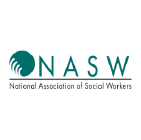
National Association of Social Workers (NASW)
The National Association of Social Workers (NASW) is an organization that focuses on the quality of care provided by social workers across the United States. HelpStartsHere, the NASW’s online directory, has lists of clinical social workers, psychologists, and psychiatrists who have different specialties, including alcohol use disorders (AUDs). You can also narrow your search by geographic area, mental wellness topics, and other factors.
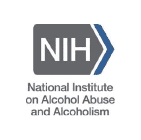
National Institute on Alcohol Abuse and Alcoholism (NIAAA)
This is a national organization that can provide you with information on alcohol-related issues and treatment resources. Many people often refer to the National Institute on Alcohol Abuse and Alcoholism (NIAAA) to learn about current alcohol use research studies and finding opportunities for various treatment services. The NIAAA also publishes a variety of articles and white papers related to the effects of alcoholism, binge drinking, alcohol poisoning, and drinking during pregnancy.
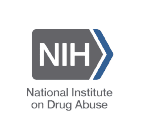
National Institute on Drug Abuse (NIDA)
The National Institute on Drug Abuse (NIDA) provides scientific data about causes of alcoholism, as well as the short- and long-term effects of heavy drinking. Having a comprehensive understanding about alcohol use disorders helps develop new ways to treat those who are battling a drinking problem. The organization has a wide range of studies containing information about how excessive alcohol consumption affects and rewires the brain.
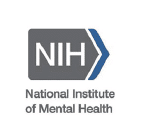
National Institutes of Mental Health (NIMH)
As part of the U.S. Department of Health and Human Services, the National Institute of Mental Health (NIMH) concentrates primarily on individuals who have a mental health disorder and alcoholism dual diagnosis. The NIMH has a host of information about anxiety and depression as they coexist with alcohol use disorders (AUDs). Through clinical studies and other research findings, the organization helps people better understand prevention and recovery.

Substance Abuse and Mental Health Services Administration (SAMHSA)
A treatment facility locator for alcoholism and mental health disorders is available through the Substance Abuse and Mental Health Services Administration (SAMHSA). SAMHSA is part of the U.S. Department of Health and Human Services which helps educate the public about how to prevent or recover from alcoholism. It also focuses on providing helpful information about dual diagnosis conditions, such as mental health disorders and substance abuse.
Paid Advertising. We receive advertising fees from purchases through the BetterHelp links below.
Online Counseling for Alcohol Addiction
Online therapy can help you with long term addiction support. Start your therapy journey with BetterHelp.
- Personalized Matching Process
- Easy Online Scheduling
- 20,000+ Licensed Therapists
- Personalized Matching Process
- Easy Online Scheduling
- 20,000+ Licensed Therapists
Use Every Tool At Your Disposal To Quit
The decision to seek a sober life is not an easy one. For many, it will be one of the most difficult journeys of their life. As you have seen, however, there are numerous resources available to you that can help make the process easier. To find out more about what options you can take advantage of, contact a treatment provider today.

